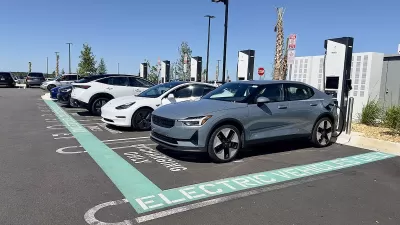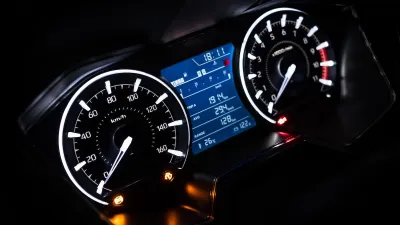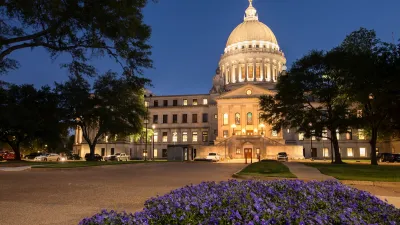With dwindling revenue and a narrow scope for funding projects, it may be time for Washington State to re-evaluate its gas tax in favor of more sustainable revenue sources.

Anna Zivarts and Paulo Nunes-Ueno, in a guest post for PubliCola, advocate for ending the gas tax in Washington State, calling it "regressive and racist."
With gas consumption decreasing thanks to advancements in technology and transportation, the authors argue a gas tax "isn’t going to be a reliable revenue stream." The wealthy are more likely to own a fuel-efficient or electric vehicle, thus spending less, if anything, on gas taxes.
Furthermore, because of its mandate to fund exclusively highways, the gas tax does not benefit neighborhood roads or other forms of transportation. Zivarts and Nunes-Ueno claim "the gas tax restrictions are redlining on wheels, funneling investments away from BIPOC neighborhoods because of the restrictions in where revenue can be spent." Expanding the state's highway system, the authors write, is "inexcusable" at a time when "the Washington State Department of Transportation (WSDOT) estimates they have less than half of what they need to keep the current highway system in good repair."
The authors contend that Washington's gas tax, increased in the 1970s to fund highway construction after prolonged lobbying by highway proponents, is no longer a useful way to fund the state's transportation projects. To invest in multimodal projects that serve all residents, "we need new sustainable funding sources that are not regressive, racist, or running out."
FULL STORY: The Gas Tax is Regressive and Racist. Let's End It

Planetizen Federal Action Tracker
A weekly monitor of how Trump’s orders and actions are impacting planners and planning in America.

Map: Where Senate Republicans Want to Sell Your Public Lands
For public land advocates, the Senate Republicans’ proposal to sell millions of acres of public land in the West is “the biggest fight of their careers.”

Restaurant Patios Were a Pandemic Win — Why Were They so Hard to Keep?
Social distancing requirements and changes in travel patterns prompted cities to pilot new uses for street and sidewalk space. Then it got complicated.

Platform Pilsner: Vancouver Transit Agency Releases... a Beer?
TransLink will receive a portion of every sale of the four-pack.

Toronto Weighs Cheaper Transit, Parking Hikes for Major Events
Special event rates would take effect during large festivals, sports games and concerts to ‘discourage driving, manage congestion and free up space for transit.”

Berlin to Consider Car-Free Zone Larger Than Manhattan
The area bound by the 22-mile Ringbahn would still allow 12 uses of a private automobile per year per person, and several other exemptions.
Urban Design for Planners 1: Software Tools
This six-course series explores essential urban design concepts using open source software and equips planners with the tools they need to participate fully in the urban design process.
Planning for Universal Design
Learn the tools for implementing Universal Design in planning regulations.
Heyer Gruel & Associates PA
JM Goldson LLC
Custer County Colorado
City of Camden Redevelopment Agency
City of Astoria
Transportation Research & Education Center (TREC) at Portland State University
Camden Redevelopment Agency
City of Claremont
Municipality of Princeton (NJ)





























